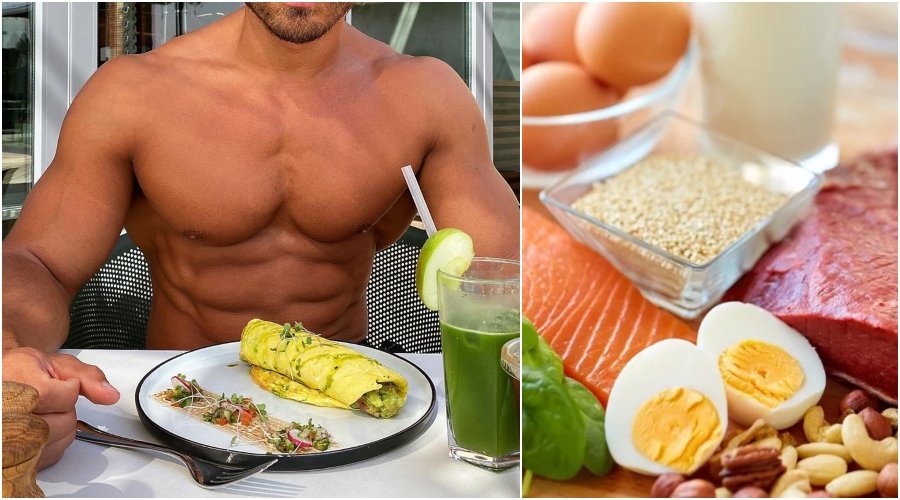Building lean muscle while simultaneously burning fat may not seem straightforward, but a few calculations and supermarket trips and you could be on your way to a new physique. Energy expenditure and your diet are key.
Aim to consume around 2-3g of protein per kilogram of lean bodyweight every day, while reducing your carbohydrate (energy) intake to help the body manage the nutrients you consume. As you reduce the amount of calories you eat your body starts to burn fat for energy.
But calorie cutting can make you lose muscle – so don’t overdo it. The trick to get ripped fast: cut calories from carbs and eat more protein. This safeguards your muscle. If you cut too many calories, your body thinks it’s starving so it starts to conserve and store them, which reduces the rate at which you burn body fat.
1. Beets

A great source of betaine, a nutrient that clinical research has proven increases muscle power and strength as well as enhancing joint and liver repair (good if you like a drink or five.) The humble beet also provides a nitric oxide boost, which helps to boost energy and aid a faster recovery.
2. Cottage Cheese

The only cheese that you’re ever likely to find on a list of muscle-building, fat-shredding foods. Cottage cheese is rich in casein protein, the slowest-digesting form of protein that you can eat, this prevents your muscles from being used as an energy source while you sleep, making it the only cheese we’ll ever advise you to eat before bed.
3. Quinoa

Go on, have a go at pronouncing it. Pronounced ‘keen-wah’ this grain should be a constant in your diet. As well as being a slow digesting, energy releasing carb, it is also a complete protein. This super-food has also been linked with an increase in insulin-like growth factor-1 levels, one of the most important factors associated with strength gains and putting on lean muscle.
4. Spinach

There is some truth behind Popeye’s love for the green stuff, despite the fact that it decreases to about 1/8 of its original size when it’s cooked. Spinach is a great source of amino acids and glutamine, essential nutrients for the growth of lean muscle.
5. Greek Yoghurt

Although it does originate from the same source as milk, Greek yoghurt has a lot more protein, packing in a muscle building 20g per 235ml; it also contains fewer carbohydrates than normal yoghurt. Not to mention it is a healthy source of casein protein.
6. Brown rice

It might not taste quite as good as white rice, but the browner stuff is a lot healthier. It’s a slow-digesting whole grain that will provide you with longer-lasting energy during your workouts. Brown rice is also known to boost your growth hormone levels, which are essential for encouraging fat loss, strength gains and the growth of lean muscle.
7. Beef

You can’t go wrong with a good bit of beef. It might have become fairly expensive in recent years but it’s an important lean-muscle building food due to its sky-high protein, zinc, B vitamins and iron content. Try to buy organic beef if you can, as grass fed, healthier cows have high levels of CLA, which gives you a boost in building lean muscle and shedding fat.
8. Apples

It might come as a surprise to many, but apples help to prevent muscle fatigue and increase muscle strength due to the specific polyphenols that they contain. Recent research has also suggested that apples speed up the fat-burning process, making them an ideal pre-workout snack.
9. Sweet potatoes

Although they are full of carbs, sweet potatoes are great for building lean muscle. The carbs contained in sweet potatoes keep your glucose stable, a key element in burning fat and preserving muscle. They are a unique carb that actually aid weight loss due to their high fibre content, but they actually keep you fuller for longer than most other starchy vegetables.
10. Eggs

Often described as the perfect protein, eggs are your best friend when it comes to boosting lean muscle growth and strength gains, but this isn’t just down to the protein alone; the cholesterol found in the yolk is also a contributing factor.

